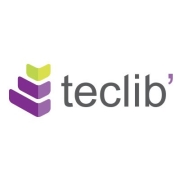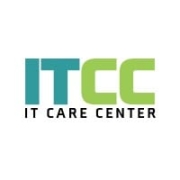IT Service Management (ITSM) provides a framework for delivering information technology services, addressing business needs efficiently. It encompasses best practices for managing and optimizing IT operations.
ITSM focuses on aligning IT services with business objectives, ensuring service quality and efficiency. It integrates processes like incident management, change control, and service request fulfillment. Popular platforms include ServiceNow, BMC Helix, and Cherwell, which offer tailored solutions for varying organizational needs. User reviews emphasize adaptability, ease of integration, and enhanced process visibility as key strengths of these tools.
What are the critical features to look for in ITSM solutions?In industries like finance and healthcare, ITSM tools are imperative for regulatory compliance and ensuring data security. In retail, these solutions help manage IT support for POS systems and customer data management, while manufacturing benefits from streamlined production process integration.
Adopting ITSM optimizes IT processes, ensuring alignment with business goals, and delivers consistent, high-quality services. This strategic approach fosters better communication between IT and other departments, supporting organizational growth and innovation.
| Product | Market Share (%) |
|---|---|
| ServiceNow | 21.0% |
| JIRA Service Management | 8.7% |
| BMC Helix ITSM | 8.1% |
| Other | 62.2% |



































































An efficient incident management process is crucial for maintaining service continuity and minimizing downtime. By implementing ITSM, you can automate workflows, assign tasks based on agent skills, and monitor key performance indicators. This structured approach helps in quickly identifying issues, streamlining communication, and ensuring that incidents are resolved in a timely manner. ITSM tools often come with integrated reporting functionalities that help in continuous improvement.
Why is ITSM important for compliance?ITSM is vital for meeting industry regulations and standards as it provides a framework for documenting procedures, managing changes, and ensuring data security. By using ITSM solutions, you create audit trails and maintain transparency, essential for complying with regulations such as GDPR or HIPAA. The structured approach facilitates easy verification and adjustments to processes, ensuring compliance with minimal disruption to daily operations.
What role does ITSM play in digital transformation?In digital transformation, ITSM acts as a backbone by providing structured processes that ensure new technologies are implemented smoothly. ITSM brings agility and a customer-focused approach, helping you align IT services with business objectives. By facilitating better resource management and service delivery, ITSM supports the adoption of innovative solutions, helping to drive company-wide digital initiatives.
How does ITSM support service level management?ITSM tools enable you to define, manage, and track service level agreements (SLAs) effectively. By using ITSM, you can set clear performance metrics, monitor service levels in real time, and generate reports. This ensures transparency and helps in maintaining the agreed-upon quality of service. Having a clear understanding of SLAs helps in managing customer expectations and enhances customer satisfaction.
What are the cost benefits of implementing ITSM?Implementing ITSM can lead to significant cost savings by optimizing IT operations and resource management. It helps in reducing unplanned work, preventing incidents before they occur, and efficiently managing assets. Automation of routine tasks decreases the dependency on manual interventions, allowing staff to focus on strategic initiatives instead. Over time, the improved efficiency and effectiveness of IT services lead to substantial cost reductions.